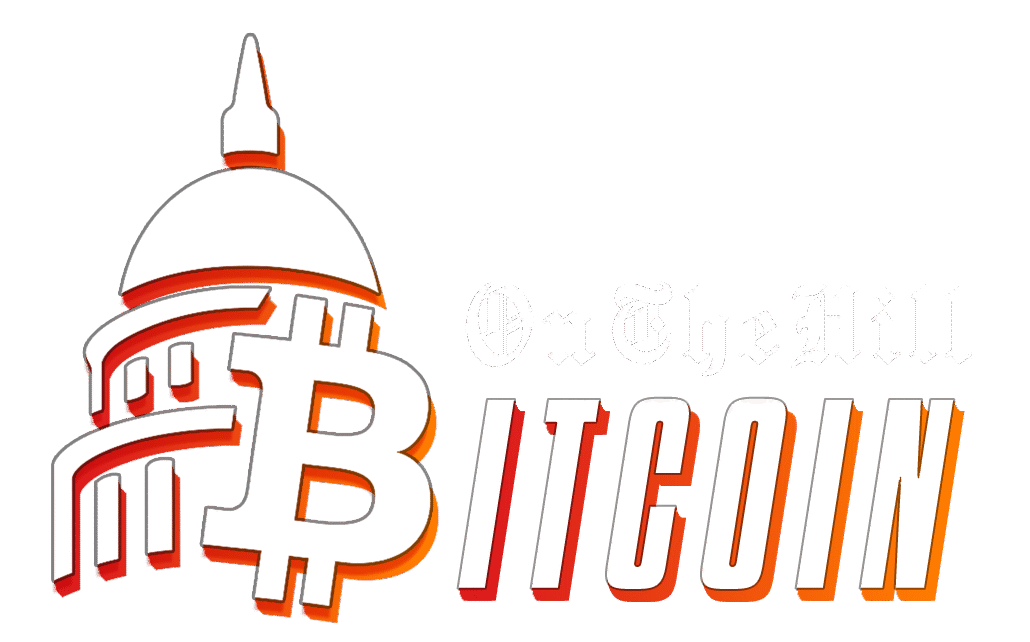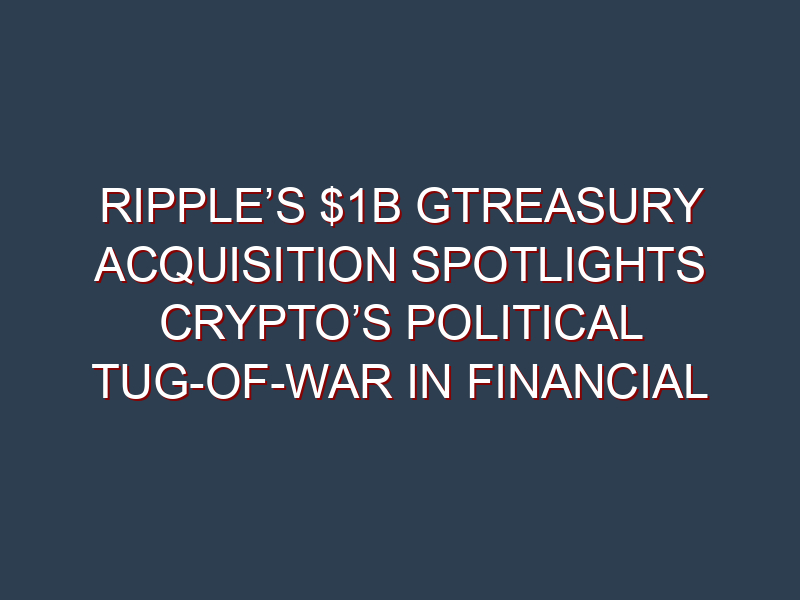Crypto Reshaping Treasury Management: Ripple Makes Its Move
Ripple’s bold decision to acquire GTreasury for a reported $1 billion signals more than corporate ambition—it thrusts the crypto industry deep into the heart of America’s financial infrastructure. This strategic move magnifies the political chess game playing out in Washington, as regulators, lawmakers, and industry leaders wrestle over how digital assets should weave into critical market systems. Ripple’s entrance into the corporate treasury business isn’t just a commercial pivot; it’s a direct challenge to how policymakers think about systemic risk, dollar supremacy, and the very future of financial oversight.
The Regulatory Frontline: Ripple’s Challenge to Washington
Ripple’s latest acquisition puts federal regulators directly in the spotlight. Agencies like the U.S. Securities and Exchange Commission (SEC) and the Commodity Futures Trading Commission (CFTC) have struggled for years to define their turf in crypto, often clashing over jurisdiction. With Ripple aiming to integrate tokenized digital payments into traditional corporate cash management, the pressure is mounting for a coherent regulatory framework. Lawmakers on Capitol Hill are now pressed to update or overhaul existing statutes—many written long before blockchain was a household word.
This acquisition could force the hand of federal agencies. The U.S. Treasury Department’s Office of Domestic Finance, for example, must now confront whether crypto-parented treasury services introduce unseen risks to the stability of U.S. corporate balance sheets, and if so, how to mitigate them.
Political Motivations: Innovation vs. National Security
Under the surface, the Ripple-GTreasury merger is stirring long-standing political tensions between encouraging innovation and safeguarding economic security. Financial innovation hawks in both parties see a competitive edge: Ripple’s blockchain solutions promise lightning-fast, global liquidity options for American businesses, potentially solidifying the U.S. dollar’s role in the international marketplace. But national security voices—often wary of crypto’s potential in money laundering or sanctions evasion—have historically lobbied for stringent controls.
This acquisition will likely be scrutinized in upcoming House Financial Services Committee and Senate Banking Committee hearings, with lawmakers questioning not just market impacts, but broader implications for financial crime, data privacy, and America’s influence abroad.
Policy Implications: Setting the Stage for Crypto Lawfare
With Ripple planting its flag in the treasury management sector, political pressure is bound to escalate—for better or worse. Congressional leaders may view this as a test case for new crypto legislation, especially as the 2025 election cycle nears and digital asset policy becomes a campaign talking point. Some lawmakers could call for tighter reporting standards, consumer protections, or disclosure requirements for any company intertwining blockchain finance with traditional corporate services.
On the flip side, Ripple’s expansion will invite calls from tech-friendly legislators for lighter-touch regulation, asserting that heavy-handed government action could undermine American leadership in the burgeoning digital economy. Expect a renewed push for clearer definitions under the Howey Test and other legal parameters that currently shape the crypto-regulatory landscape.
Looking Ahead: Crypto’s Place at America’s Economic Table
Ripple’s $1B play for GTreasury isn’t just a headline—it’s a litmus test for how aggressively the U.S. government will embrace, regulate, or resist crypto’s encroachment into mainstream financial operations. With digital asset policy increasingly seen as both a matter of economic opportunity and a flashpoint for electoral debate, Ripple’s deal could set the stage for a new era of political wrangling over who gets to write the rules for tomorrow’s financial system.
In a political moment defined by uncertainty and rapid change, this acquisition throws down the gauntlet—for regulators, lawmakers, and for all who care about the direction of American finance.





